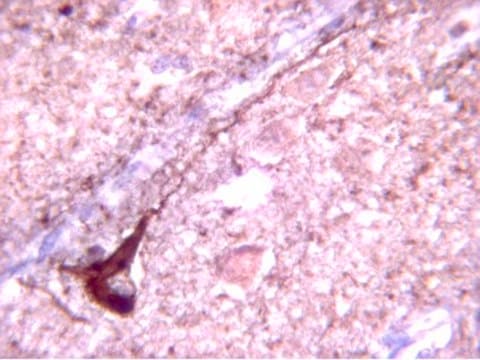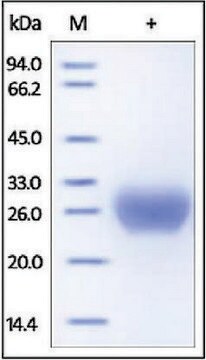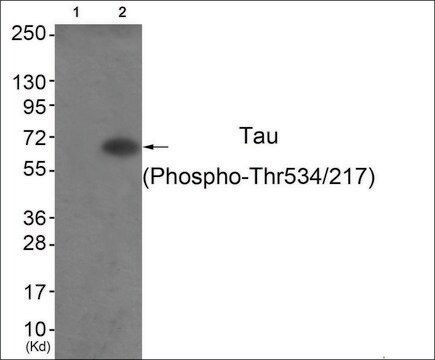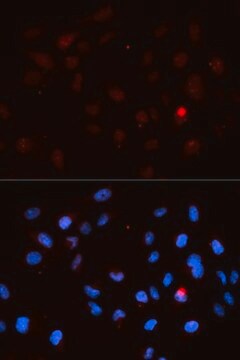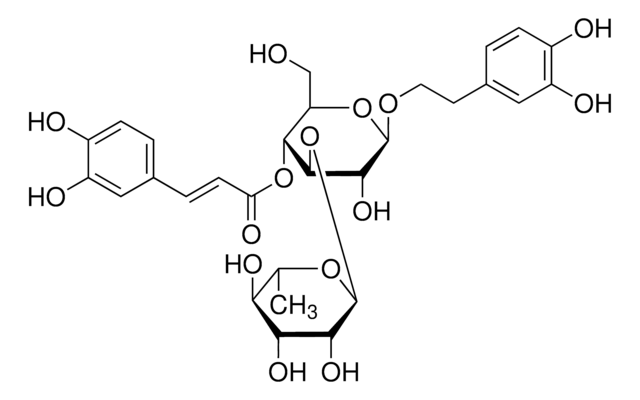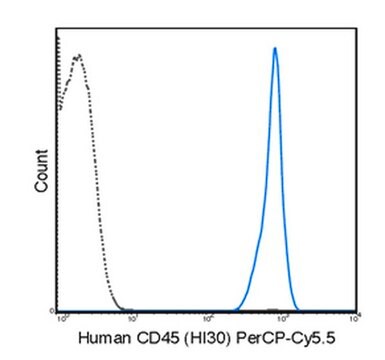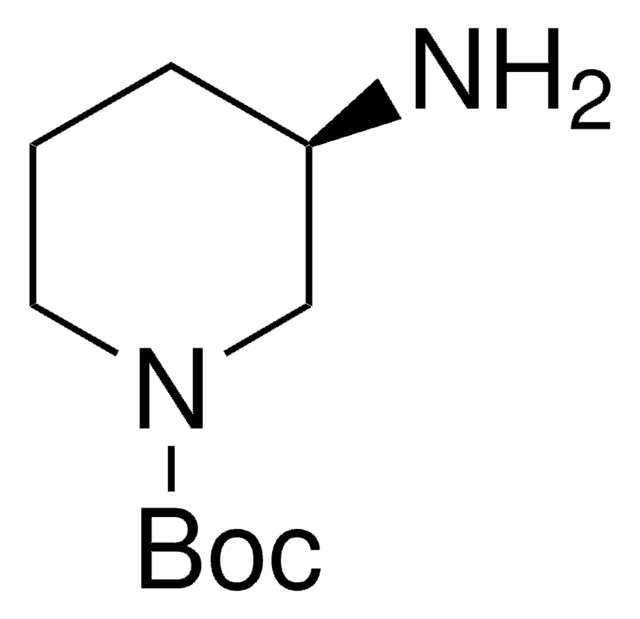推薦產品
生物源
mouse
抗體表格
ascites fluid
無性繁殖
PHF-6, monoclonal
物種活性
human
製造商/商標名
Chemicon®
技術
ELISA: suitable
western blot: suitable
同型
IgG1
UniProt登錄號
運輸包裝
dry ice
目標翻譯後修改
phosphorylation (pThr231)
特異性
Reacts with human Tau phosphorylated at threonine 231 and fetal tau. The antibody also reacts with dephosphorylated neurofibrillary tangles. MAB5450 is reactive with the Thr231 phosphorylated and diphosphorylated peptides. No reactivity with normal adult tau or with unphosphorylated or serine 235 phosphorylated protein.
免疫原
Epitope: phosphoThreonine 231
Paired helical filaments tau preparation from human brain.
應用
Anti-Tau Antibody, phosphoThreonine 231, clone PHF-6 is an antibody against Tau for use in ELISA & WB.
Research Category
Neuroscience
Neuroscience
Research Sub Category
Neurodegenerative Diseases
Neurodegenerative Diseases
Western blot: 1:1000, non-phosphate buffers recommended. Specific for phospho-tau however highly phosphorylated blocking materials like non-fat milk can sometimes cause difficulties, thus we generally recommend blocking western blots with TBS-1-2% BSA solutions (filtered through a 0.45μm membrane) for better results.
Immunohistochemistry: fresh frozen tissues with Tris-NaCl-Triton treatment
{http://www.jhc.org/cgi/content/full/48/12/1627} & http://ajp.amjpathol.org/cgi/content/full/160/6/2045
Optimal working dilutions must be determined by end user.
Immunohistochemistry: fresh frozen tissues with Tris-NaCl-Triton treatment
{http://www.jhc.org/cgi/content/full/48/12/1627} & http://ajp.amjpathol.org/cgi/content/full/160/6/2045
Optimal working dilutions must be determined by end user.
外觀
Liquid.
儲存和穩定性
Maintain at -20°C in undiluted aliquots for up to 12 months after date of receipt. Avoid repeated freeze/thaw cycles.
法律資訊
CHEMICON is a registered trademark of Merck KGaA, Darmstadt, Germany
免責聲明
Unless otherwise stated in our catalog or other company documentation accompanying the product(s), our products are intended for research use only and are not to be used for any other purpose, which includes but is not limited to, unauthorized commercial uses, in vitro diagnostic uses, ex vivo or in vivo therapeutic uses or any type of consumption or application to humans or animals.
儲存類別代碼
10 - Combustible liquids
水污染物質分類(WGK)
WGK 1
閃點(°F)
Not applicable
閃點(°C)
Not applicable
分析證明 (COA)
輸入產品批次/批號來搜索 分析證明 (COA)。在產品’s標籤上找到批次和批號,寫有 ‘Lot’或‘Batch’.。
Aggregates of small nuclear ribonucleic acids (snRNAs) in Alzheimer's disease.
Hales, CM; Dammer, EB; Diner, I; Yi, H; Seyfried, NT; Gearing, M; Glass, JD; Montine et al.
Brain Pathology null
Quantitative phosphoproteomics of Alzheimer's disease reveals cross-talk between kinases and small heat shock proteins.
Dammer, EB; Lee, AK; Duong, DM; Gearing, M; Lah, JJ; Levey, AI; Seyfried, NT
Proteomics null
G T Bramblett et al.
Neuron, 10(6), 1089-1099 (1993-06-01)
Abnormally phosphorylated tau proteins (A68) are the building blocks of Alzheimer's disease (AD) paired helical filaments. The biological consequences of the conversion of normal adult tau to A68 remain unknown. Here we demonstrate that native A68 does not bind to
Chien-Ning Huang et al.
BMC complementary medicine and therapies, 20(1), 370-370 (2020-12-04)
Insulin resistance could be associated with the development of Alzheimer disease (AD). The neuropathological hallmarks of AD are beta amyloid (Aβ) produced from sequential cleavage initiated by β-secretase and degraded by insulin degradation enzyme (IDE), as well as hyperphosphorylation of
Pablo Martinez et al.
Nature neuroscience, 25(12), 1597-1607 (2022-11-08)
Tau aggregation is a defining histopathological feature of Alzheimer's disease and other tauopathies. However, the cellular mechanisms involved in tau propagation remain unclear. Here, we performed an unbiased quantitative proteomic study to identify proteins that specifically interact with this tau
我們的科學家團隊在所有研究領域都有豐富的經驗,包括生命科學、材料科學、化學合成、色譜、分析等.
聯絡技術服務